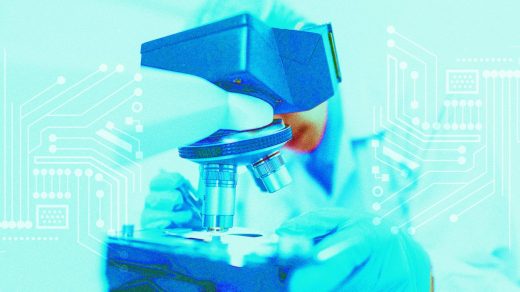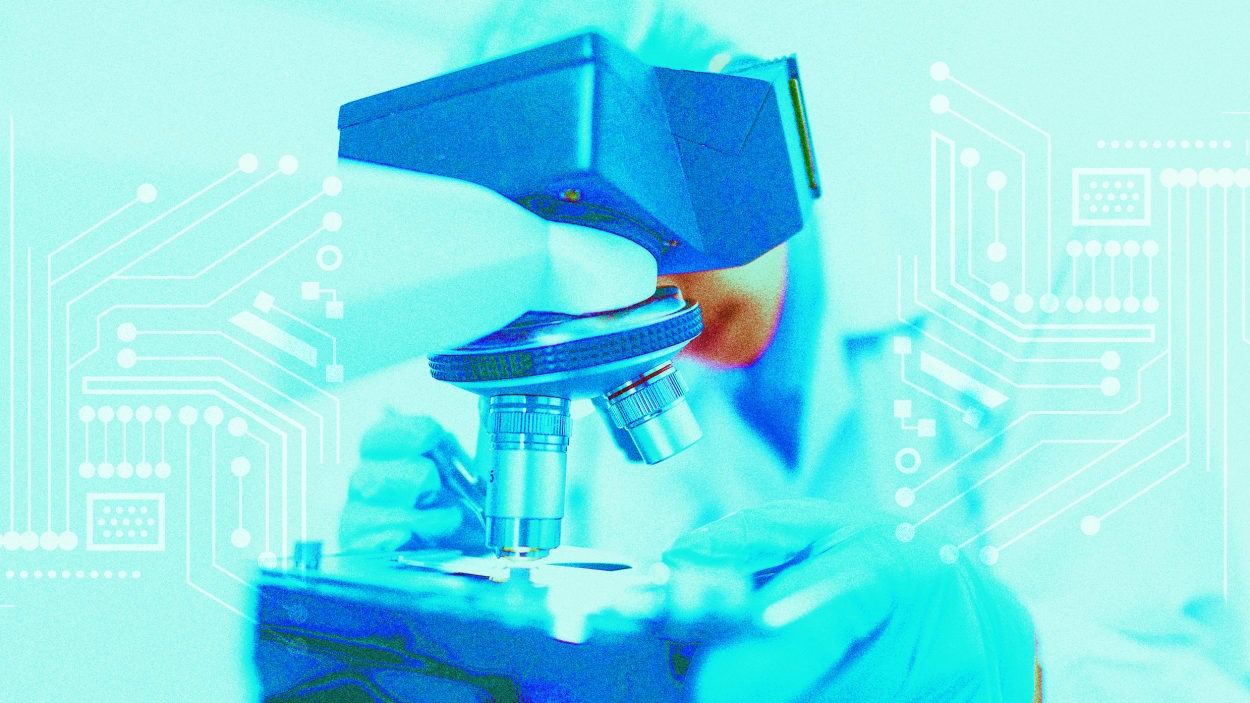This biotech company uses AI to enable doctors to share research to cure diseases
At AI biotech company Owkin, cofounder and CEO Thomas Clozel is rethinking cancer and disease research through an entirely new lens—and aiming to break down barriers in healthcare along the way.
“The field of research in medicine is extremely siloed,” Clozel says. “Open innovation in health doesn’t really exist.” As a clinical research doctor and former assistant professor in clinical hematology, Clozel witnessed these silos firsthand. He saw that patients needed more effective drugs, tailored to their specific conditions and biology—and realized that gathering research across institutions was the best path toward better drug development.
“Being a clinician gave me a totally different perspective on how I could see the solution to help [patients] out,” Clozel says. On this week’s Leaders in Innovation podcast, he shares how his company is bridging the gap between academic research and the pharmaceutical industry.
Clozel says that this kind of collective intelligence comes from breaking competitive silos. Owkin, founded in 2016, does so by using a form of machine learning called federative learning, which Clozel defines as simply allowing institutions to train AI together without having a need to share data.
“It’s a way to see the data differently,” Clozel says. “This is a big bet, and for me, I call it the ‘unfocus’ bet. If you’re an innovator, most of your venture capitalists will ask you for focus. They will come down and say, ‘You need to focus—one data modality, which disease? Where are you going to build? Not the full biotech, which segment of the biotech?’ I always fight [that] off. I was like, ‘No, I want to absolutely unfocus. I want to be open, I want to work on all modalities and I want to re-create the full stack biotech. I don’t want to work on one segment.’”
Clozel has referred to this as the “Da Vinci model,” or the concept that true innovation comes from threading together many areas of study, like Leonardo da Vinci once did. To Clozel, AI is simply the medium that makes accelerated innovation possible in the healthcare space. From a visual perspective, AI can detect patterns that the human eye might never perceive, and recommend certain treatments in response. Doctors and pharmaceutical companies can use those insights to inform their next steps.
“I think something in healthcare that’s very important is the crosstalk between the AI itself, the doctors, and the researchers that don’t understand things the same way,” Clozel says. “To me, AI is a communication tool. In the end it gives you insights that still need the human intelligence to come with it, to be able to build that. I think AI is not an end product—AI is just a tool [for] something else.”
Listen to the full conversation between Thomas Clozel and James Vincent on this week’s Leaders in Innovation podcast. Subscribe on Apple Podcasts, Stitcher, Spotify, or wherever you get your podcasts.
(5)



